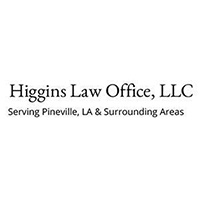Simmesport Felony Lawyer, Louisiana
Sponsored Law Firm
-
 x
x

Click For More Info:
-
Babcock Trial Lawyers
10101 Siegen Ln #3-C Baton Rouge, LA 70810» view mapCriminal Defense We Want Your Injury Claim PAID NOW!
At Babcock Trial Lawyers, we work for our clients, maintaining our reputation of excellence as criminal defense & personal injury lawyers in Baton Rouge.
225-500-5000
Not enough matches for Simmesport Felony lawyer.
Below are all Simmesport Criminal lawyers.
George Higgins
✓ VERIFIEDGeorge Lewis Higgins III received his Juris Doctor degree in 1979 from Paul M. Hebert Law Center at Louisiana State University in Baton Rouge. Mr. Hig... (more)
Kathryn Jakuback Burke
✓ VERIFIEDKathryn graduated from LSU’s Paul M. Hebert Law Center in 2017. During law school she was an active participant in Moot Court and Trial Advocacy. Du... (more)
Jacob Guice Longman
✓ VERIFIEDJacob is a 2017 graduate of the Paul M. Hebert Law Center. During law school, he participated in Trial Advocacy and Moot Court, was President of the S... (more)
Gracella Gail Simmons
FREE CONSULTATION
CONTACTFREE CONSULTATION
CONTACTTed Williams
FREE CONSULTATION
CONTACT Stephen Babcock Baton Rouge, LA
Stephen Babcock Baton Rouge, LA Practice AreasExpertise
Practice AreasExpertise



